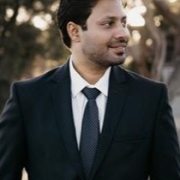Thursday 29 May from 1:30-2:30pm (hybrid)
Reimagining assessment design in the era of AI: Challenges, opportunities, strategies & resources
Presented by Dr Cherie Lucas
The emergence of generative AI presents both challenges and opportunities for reconsidering assessment design in higher education. Traditional assessment methods, often focused on products (artefacts), are increasingly vulnerable to AI-generated outputs, necessitating a shift towards process-driven and higher-order thinking assessments. This workshop explores approaches towards developing AI-resilient and AI-enhanced assessments that uphold academic integrity while providing students with meaningful learning at different stages in their program.
Participants will critically evaluate the impact of AI on traditional assessment practices, explore UNSW’s five principles of effective assessment design, in light of TEQSA’s five propositions of assessment in the era of AI; understand the types of assessments which are more difficult for AI to simulate; consider approaches to assessment which contribute with assessment assurance; and examine frameworks such as Bloom’s Revised Taxonomy and Fink’s Taxonomy of Significant Learning to enhance rubric design to weight higher grades towards higher order thinking processes.
The session will also provide practical resources, including a brief “walk through” of the newly developed Course Convenor AI Toolkit, and the UNSW self-audit checklist to ensure assessments align with ethical and pedagogical best practices.
When redesigning assessments, the following should be considered:
- Consider Weighting the Assessment towards the Process Over Product – Focus on students' reasoning, decision-making, and problem-solving rather than final artefacts to make assessments more AI-resilient.
- Emphasise Higher-Order Thinking – Use Bloom’s and Fink’s Taxonomies to design assessments and rubrics that prioritise critical thinking, evaluation, and creativity, making it more difficult for AI to simulate.
- Integrate where possible Authentic Assessments – Implement real-world tasks like viva voce, debates, role-plays, and supervised work-integrated learning (WIL) to enhance student engagement and skill demonstration.
- Transparency and Ethical Considerations – Develop transparent, inclusive, and ethical assessment strategies that uphold academic integrity while adapting to AI’s evolving capabilities. Model transparency with your students.
- UNSW resources and frameworks are there to guide you - Utilise Frameworks such as the UNSW Assessment Policy and resources such as Course Convenor AI Toolkit, UNSW assessment considerations in course and program development and self-audit checklists to future-proof assessment designs.
Register for session
About the presenter
Dr Cherie Lucas
Nexus Fellow and SFHEA, UNSW Medicine & Health
Dr Cherie Lucas, PhD, BPharm, Grad Cert Edu Stud (Higher Educ), FPS, SFHEA is the Nexus Fellow at the School of Population Health, Faculty of Medicine and Health at the University of NSW, Sydney, Australia. Cherie has published over 91 publications in the area of teaching and learning with over 55 as first author. She has been awarded numerous Vice-Chancellor teaching, learning, innovation awards and recognition including being the recipient of an Australian Award for University Teaching (AAUT) Citation for the individual category in “motivating and inspiring student learning”. Cherie is also the recipient of two research awards at international conferences related to her SoTL research.
Her educational research interests include curriculum design and instruction, developing reflective practice tools, including those used with ePortfolios; assessment strategies to enhance student engagement, experience and learning; and building artificial intelligence (AI) capability for educators and students. She has led teams in interprofessional education, ePortfolios, collaborated with colleagues on the development of AI feedback tools and strategies to enhance reflective practice.




